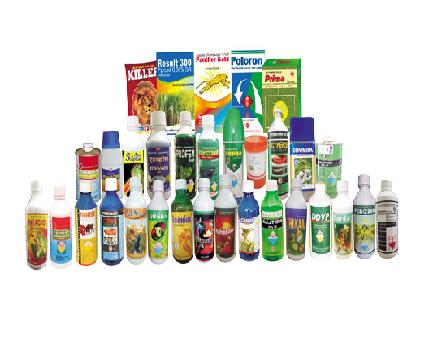The Minister of State for Agriculture, Sabi Abdullahi, and the Ogun State government have pledged to enhance the agro-business environment, address pest infestations and disease outbreaks, and import dependency in Nigeria.
This commitment was reiterated at the launch of the N18.7 billion Springfield Agro Limited Crops Protection Chemical Plant.
Representing Vice President Kashim Shettima at the event, Abdullahi emphasised that expanding industrial capacity in the agricultural sector is essential to strengthening food security and reducing reliance on imported agrochemicals.
He stated that increasing food production and affordability is a key priority for the current administration, aligning with the federal government’s support for the Springfield initiative.
“The guarantee of food security in Nigeria lies in our ability to expand industrial capacity across the value chain.
“This significant investment, worth $12 million, is a testament to the government’s efforts to create a conducive environment for businesses to thrive.
“We cannot achieve this unless the robust committees we roll out as a government are complemented by the ambition and commitment of the private sector,” Shettima said.
He added that commissioning the agrochemical plant aligns with the government’s agenda to combat hunger and enhance national food security.
“As a continent blessed with vast arable land and the potential to be the food basket of the world, it is lamentable that Africa’s share of global manufacturing is less than two per cent,” Shettima reiterated.
Ogun State Governor Adedapo Abiodun, represented by his deputy, Noimot Salako-Oyedele, stated that improving agricultural inputs, promoting mechanisation, and strengthening extension services would position the state to enhance agricultural productivity, lower the cost of staple foods, and achieve food security.
He revealed that the facility will create over 300 jobs, primarily for Ogun State residents, and contribute to food security.
“By improving inputs, mechanisation, and extension services, our government has positioned our state to drive higher agricultural productivity, reduce the cost of staple foods, and achieve food security,” he said.
The Director of Veterinary Medicines and Allied Products at the National Agency for Food and Drug Administration and Control (NAFDAC), Rametu Momodu, assured that Springfield’s products and facilities would meet regulatory standards.
“Our mandate extends to the regulation and oversight of agrochemical production, ensuring that facilities such as this meet the highest standards of good manufacturing practices,” she said.
Chairman of Kewalram Chanrai Group, Narain Chanrai, stated that the agrochemical plant will produce herbicides, insecticides, and packaging materials, creating 300 to 500 direct and indirect jobs.
He added that the facility in Sagamu has an annual production capacity of 20 million liters of herbicides and insecticides, which will help farmers combat pest infestations.
“We have invested so far $12 million in the plant. In phase two, there will be further expansions to meet Nigerian farmers’ growing demands and requirements.”
He said the plant, aside meeting local needs will also send products to neighboring countries in the continent. He said, “We aim to export a substantial part of this production to other African countries.”












